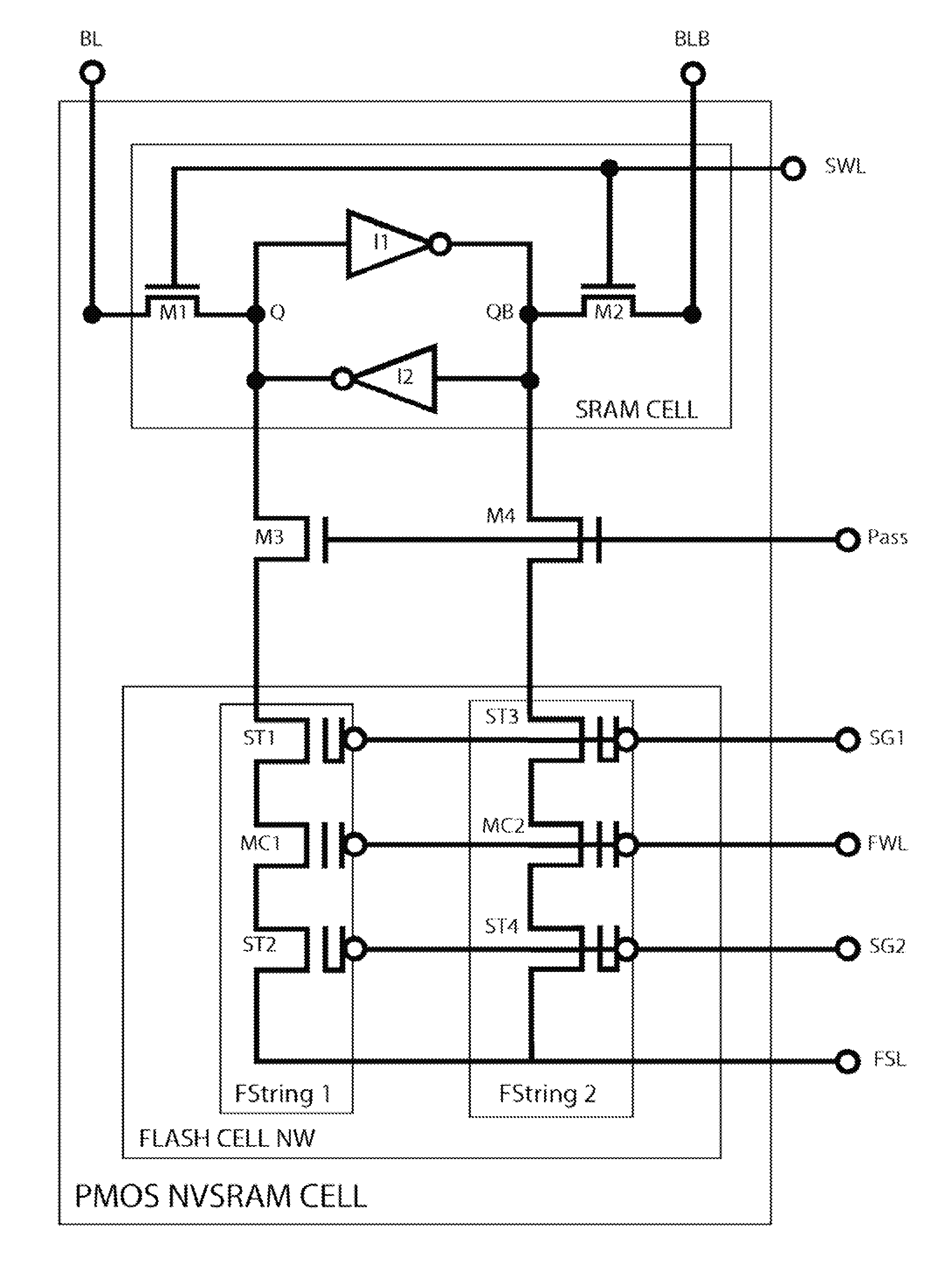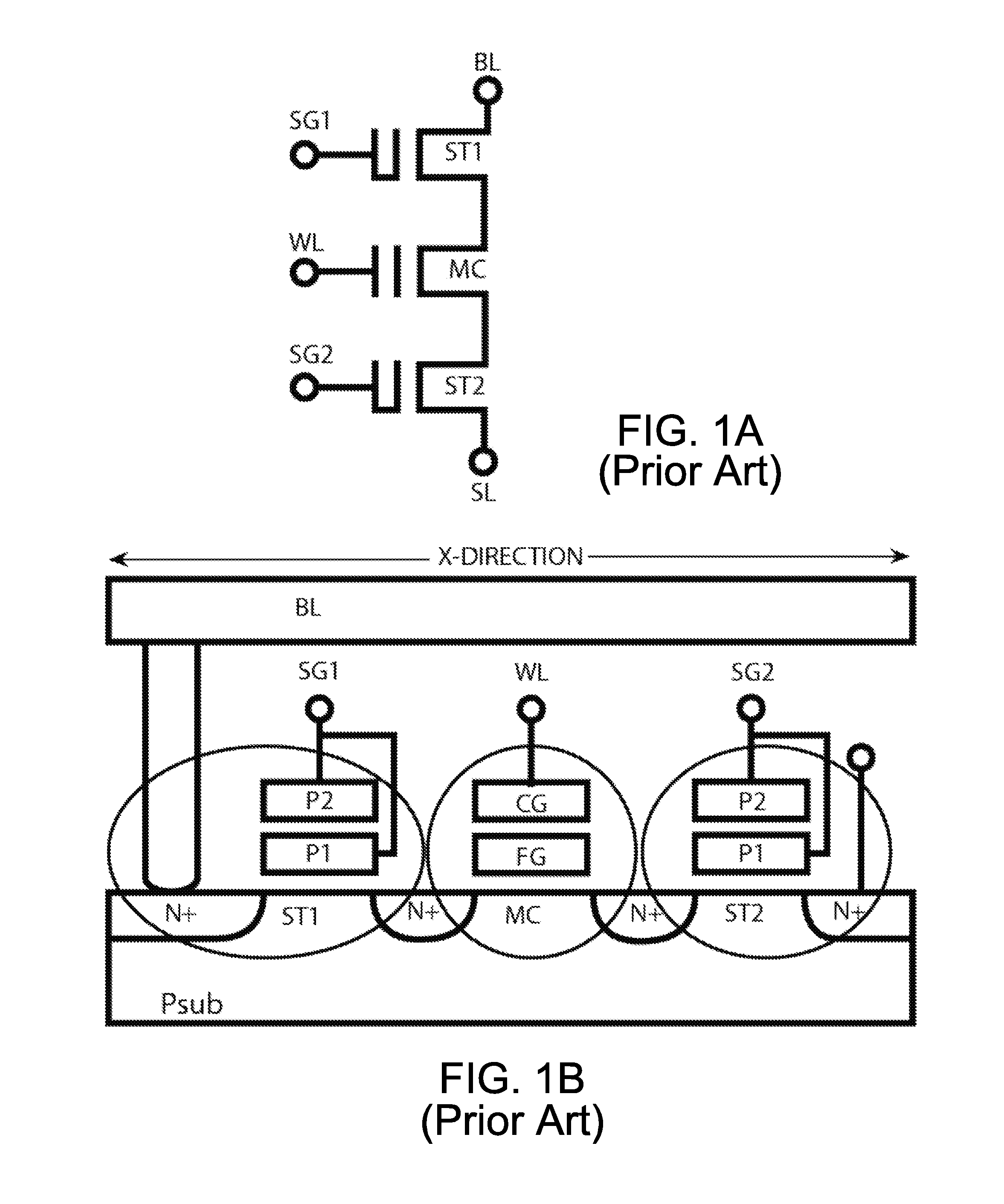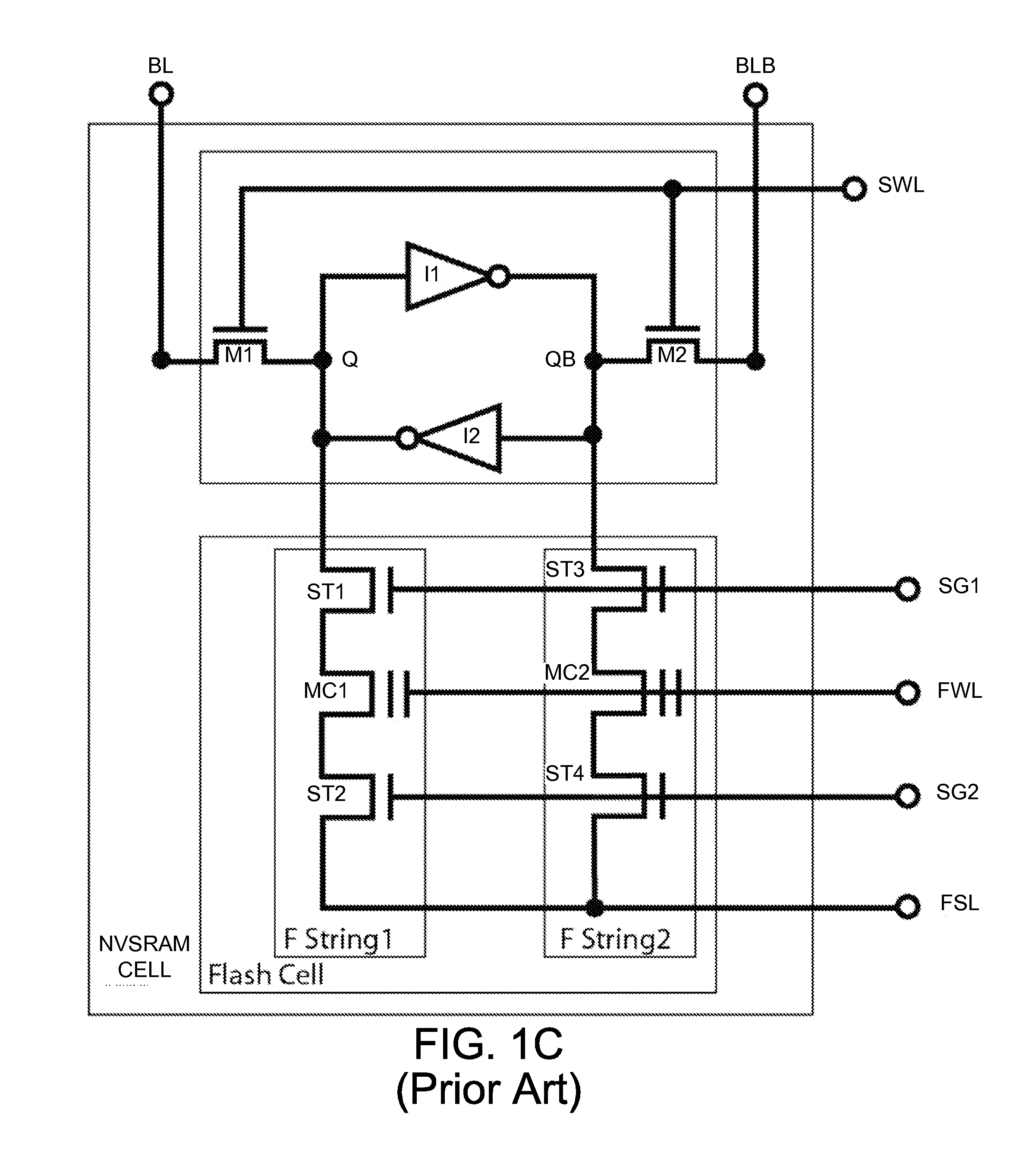Low-voltage fast-write PMOS nvsram cell
a pmos nvsram and low-voltage technology, applied in static storage, digital storage, instruments, etc., can solve the problems of reverse polarity of stored data, corresponding sram cells need more complicated circuit handling techniques, and sram lacks permanent storage capability
- Summary
- Abstract
- Description
- Claims
- Application Information
AI Technical Summary
Benefits of technology
Problems solved by technology
Method used
Image
Examples
Embodiment Construction
[0045]The present invention is generally related with a novel design of PMOS SRAM based NVRAM cell structure and array for an extremely fast Write (program and erase) speed but with only requires the low-voltage VDD and VSS for Program and Program-Inhibit operation for an extremely high-density, low-current, in-circuit programmable and erasable NVSRAM and SRAM-based FPGA designs. More particularly, unlike the previous NMOS NVSRAM cells invented by the same inventors and others, this preferred PMOS NVSRAM cell structure can be used extensively to those applications of SRAM-based FPGA IC design with a fast 10 ms simultaneously chip write on an extremely high memory density of up to 1 Gb at a low VDD read operation down to 1.2V.
[0046]To better illustrate the preferred PMOS NVSRAM cell, a revisit of some structures NVSRAM cells presented in prior art would be helpful. FIG. 1A is a schematic diagram of a 3 T NMOS Flash string used in a NMOS NVSRAM cell of prior art. Presenting this tradi...
PUM
 Login to View More
Login to View More Abstract
Description
Claims
Application Information
 Login to View More
Login to View More - R&D
- Intellectual Property
- Life Sciences
- Materials
- Tech Scout
- Unparalleled Data Quality
- Higher Quality Content
- 60% Fewer Hallucinations
Browse by: Latest US Patents, China's latest patents, Technical Efficacy Thesaurus, Application Domain, Technology Topic, Popular Technical Reports.
© 2025 PatSnap. All rights reserved.Legal|Privacy policy|Modern Slavery Act Transparency Statement|Sitemap|About US| Contact US: help@patsnap.com



